Flow cytometry plays an integral role in the modern laboratory. This rapid, high throughput, multiparameter assay is used to phenotype, characterize, and assess cell function by measuring marker expression on the cell surface and inside cells. It is an important tool that helps to ensure quality, purity, safety and/or potency of products used in cellular therapies and regenerative medicine. Learning how flow cytometry is applied in practice is essential to maximizing its power to collect and interpret data for clinical and research applications.
AABB’s course, Bringing Flow Cytometry to Life: Applications in Cellular Therapies:
The course is divided into three sections that highlight important aspects of flow cytometry practice and application for CT (view the syllabus for more information). Students will test and apply knowledge in a series of exercises. A glossary and list of supporting reference material is also included.
A continuing education credit certificate will be provided immediately upon review of all sections of the course and completion of the course evaluation.
A self-assessment is provided after viewing all three sections of the course. It is an additional study tool to gauge your level of comprehension of the content presented in the course. Passing the self-assessment is not required in order to earn continuing education credits and/or complete the course. The self-assessment is a pass/fail exercise where learners will have 4 opportunities to achieve 80% or higher. Feedback with the correct answers will be provided with the 3rd attempt. There is no grade provided for the self-assessment; rather an opportunity to reinforce your understanding of the content provided in the program.
This course is offered entirely online as independent, self-paced study through AABB’s Education Platform. After registering for the course, each learner will receive automatic access to the program. Access is granted for 1 year from the date of registration.
Individual Registration Pricing:
Discount for Multiple Registrations:
Discount for Fellows/SBB Students
Individuals can register online via the AABB Store. Individuals will be prompted to create an account if they do not already have an established account in the Store. Payment confirmation will be provided immediately after registering.
Institutions that want to purchase registrations for learners must complete and return the Institutional registration form. Payment confirmation will be provided within 2-5 business days.
The learning objectives are provided per Section:
Section 1: Foundational Concepts in Flow Cytometry
Understanding of flow cytometry technology, function and processes involved in sample preparation and measurement is important to ensuring consistent and reliable results. This section describes the technology and the ways in which flow cytometry can be optimized for CT products.
Following completion of this section, students should be able to:
Section 2: Cell Therapy Applications Using Flow Cytometry in the Cell Processing Laboratory
There are a variety of methods to apply flow cytometry to a range of different CT products. This section presents information on application of current flow cytometric methods to a variety of cell types serving both as current practices information as well as an introduction to methods that may prove useful in thinking about approaches to other flow strategies for future products. This section presents examples of how flow cytometry is used in a variety of applications.
Following completion of this section, students should be able to:
Section 3: Review of Concepts – Applying What You Have Learned
Standardization of flow cytometry testing is very important for delivery of consistent quality CT products, particularly with the increase in multi-center trials. With development of some cell types there may not be a “one size fits all” approach, but there are general points to consider in standardization. This section pulls the concepts together testing your knowledge and things to consider in a series of exercises providing feedback.
Following completion of this section, students should be able to:
Read and study all materials for each section, including additional readings that support and reinforce basic information presented. Take time to answer questions that ask you to reflect on the material. Follow the sections in order as information builds on preceding lessons. Since this is a self-paced program, learners may decide how much time is needed to review and study the materials. It is estimated the course will take approximately 4-6 hours to complete.
This program is eligible for 6 continuing education credits/contact hours for General Participation, California Lab Personnel or Florida Lab Personnel. The number and type of credits awarded for this program was determined by the estimated program completion time. This course is not eligible for continuing education credit for physicians or California Nurses. For more information on each credit type please visit our Continuing Education Credits webpage. A continuing education certificate of completion will be immediately provided to learners upon reviewing all 3 sections of the course and completion of the course evaluation.
(titles and affiliations at the time of program development)
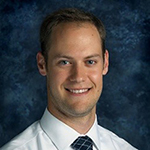 Andrew Fesnak, MD, Director, Cell Manufacturing & Development, Clinical Cell & Vaccine Production Facility, University of Pennsylvania, Philadelphia, PA
Andrew Fesnak, MD, Director, Cell Manufacturing & Development, Clinical Cell & Vaccine Production Facility, University of Pennsylvania, Philadelphia, PA
Dr. Fesnak is a transfusion medicine physician and cell therapy researcher at the University of Pennsylvania Perelman School of Medicine. He is the director of Cell Manufacturing and Development in the Clinical Cell and Vaccine Production Facility. He shares medical oversight of the Apheresis Clinic and leads a manufacturing group dedicated to developing next generation cell therapies.
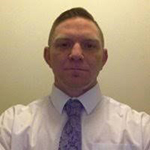 Steven Highfill, PhD Research and Product Development Supervisor, Center for Cellular Engineering (CCE) at National Institutes of Health (NIH), Bethesda, MD
Steven Highfill, PhD Research and Product Development Supervisor, Center for Cellular Engineering (CCE) at National Institutes of Health (NIH), Bethesda, MD
Dr. Highfill leads Chemistry, Manufacturing, and Controls (CMC) activities for new cell therapy products ─ building and managing project plans to achieve clinical manufacturing goals that support NIH Clinical Center Investigational New Drugs (INDs). Collaborating with Clinical Center investigators, clinical research managers, and regulatory agencies, Dr. Highfill assures that processes and assays are developed in compliance with FDA regulations to produce consistent biological products. The CCE is located within the Clinical Center of NIH and currently supports >50 active INDs from investigators within, or in affiliation with, the NIH Clinical Center. The clinical trials are predominately Phase I/II, and often first-in-human studies. Products currently in the clinical manufacturing process include T-cells (CART, TCR, virus-specific), mesenchymal stem cells, dendritic cells, natural killer cells, monocytes, and genetically modified hematopoietic stem cells (HSCs).
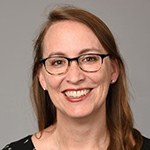 Emily Hopewell, PhD, MT, Director of Cell & Immunotherapy Manufacturing, Indiana University School of Medicine, Indianapolis, IN
Emily Hopewell, PhD, MT, Director of Cell & Immunotherapy Manufacturing, Indiana University School of Medicine, Indianapolis, IN
Dr. Hopewell has more than a decade of cellular therapy and laboratory experience. She received a BA in Microbiology and a BS in Clinical Laboratory Science from Miami University in 2002 and 2003, respectively, and obtained her medical technologist certification in 2003. She completed her PhD in cancer biology at the University of South Florida in 2012. Her career in cell therapy began in 2003 at the Moffitt Cancer Center as a technologist processing and analyzing cells for both standard of care and experimental cellular therapies. After completing her PhD, she returned to the Moffitt Cancer Center Cell Therapy team as a development specialist, then as assistant director. She is currently the director of cell and gene therapy manufacturing and an assistant clinical professor at Indiana University and is charged with implementing GMP cell manufacturing at Indiana University. She has extensive experience with flow cytometry for both standard of care hematopoietic stem cell therapy, as well as the next generation of cell and gene therapy.
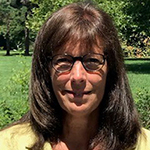 Jo Lynn Procter, MEd, MT, SBB (ASCP), CQA (ASQ), Center for Cellular Engineering, Department of Transfusion Medicine, NIH Clinical Center, National Institutes of Health, Bethesda, MD
Jo Lynn Procter, MEd, MT, SBB (ASCP), CQA (ASQ), Center for Cellular Engineering, Department of Transfusion Medicine, NIH Clinical Center, National Institutes of Health, Bethesda, MD
Jo Procter earned her BS in microbiology with a medical technology option from Pennsylvania State University in 1979. She worked as a medical technologist for 40 years. She studied blood bank technology at Michael Reese Research Foundation in Chicago, IL, in 1982 and received a Master of Education degree with a concentration in health services from Augusta College in Augusta, GA, in 1989. She began work in the department of transfusion medicine at NIH in 1991 as technical specialist, Immunohematology Reference Laboratory, transitioned to the Cell Processing Section’s Flow Cytometry Laboratory in 2001, and became supervisor of operations for what is now the Center for Cellular Engineering in 2004. Proctor retired from NIH in May 2019.
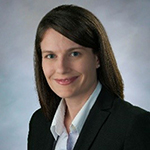 Suzanne Thibodeaux, MD, PhD, Assistant Professor, Washington University in St. Louis School of Medicine, Saint Louis, MO
Suzanne Thibodeaux, MD, PhD, Assistant Professor, Washington University in St. Louis School of Medicine, Saint Louis, MO
Dr. Thibodeaux earned her MD and PhD degrees at the University of Texas Health San Antonio. As part of her graduate work, which involved investigation of tumor immune therapies, she utilized flow cytometry to evaluate immune cell phenotypes and function. She completed a residency in clinical pathology and a fellowship in blood banking and transfusion medicine at the Hospital of the University of Pennsylvania. Dr. Thibodeaux then joined the Department of Pathology and Immunology at Washington University School of Medicine in St. Louis, MO. She is currently medical director of the Cellular Therapy Laboratory and assistant medical director of transfusion services at Barnes-Jewish Hospital. Her clinical and research interests focus on improving cellular therapies from the clinical laboratory perspective, as well as apheresis and transfusion medicine as it relates to cellular therapy.
Christina M. Celluzzi, PhD, MS
Senior Manager, Cellular Therapies, AABB, Bethesda, MD
Jose Cancelas, MD, PhD
Director, CEO, University of Cincinnati Hoxworth Blood Center, Division Director, Research, Hoxworth Blood Center, Cincinnati, OH
Jennifer L. Chain, PhD
Science Officer for Cellular Therapies, Oklahoma Blood Institute, Oklahoma City, OK
Magali Fontaine, MD, PhD
Associate Professor, Department of Pathology, University of Maryland, School of Medicine, Baltimore, MD
Carolyn Lutzko, PhD
Division Director Regenerative Medicine and Cellular Therapy, University of Cincinnati Hoxworth Blood Center, Cincinnati, OH
Debra L. Smith, MD, PhD
Associate Medical Director, Oklahoma Blood Institute/Texas Blood Institute/Arkansas Blood Institute/Coffee Memorial Blood Center; Medical Director, Cellular Therapy Laboratory; Medical Director, Cord Blood Program, Oklahoma City, OK
Cell Notes: What FDA’s Regulatory Flexibility Means for the Future of Cell and Gene Therapy
January 27, 2026
FDA Announces More Flexible Approach to CGT Regulation
January 13, 2026
REGULATORY UPDATE: FDA Releases 2026 CBER Guidance Agenda
January 12, 2026